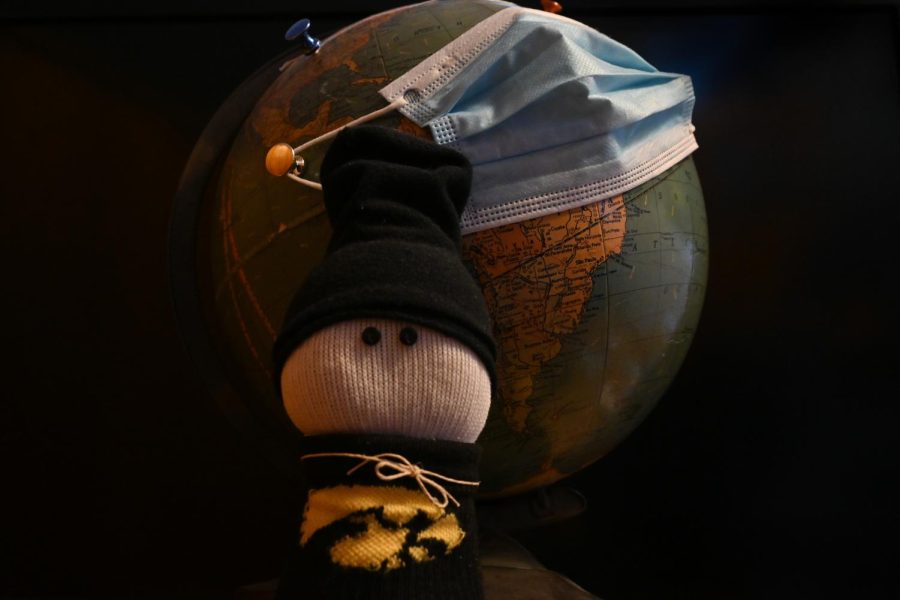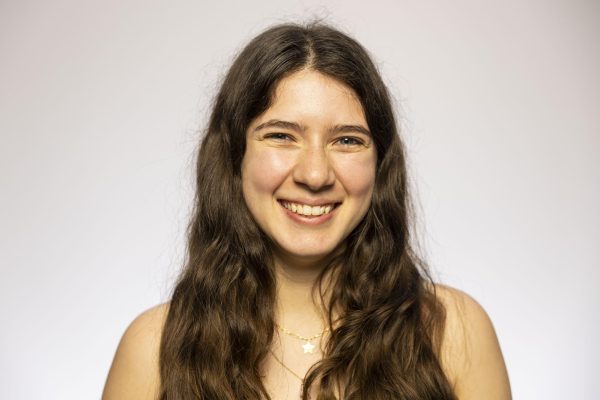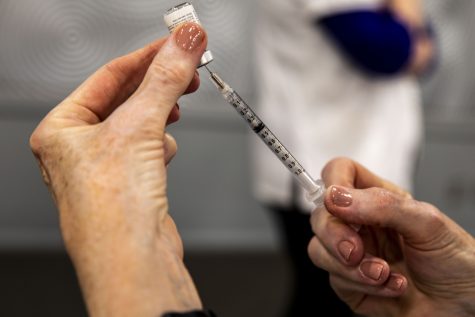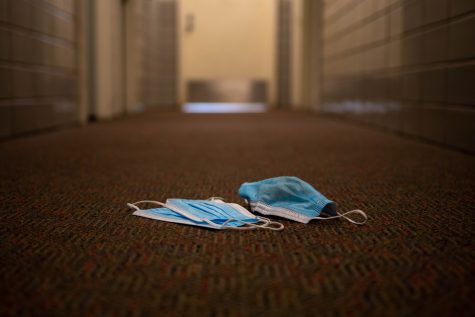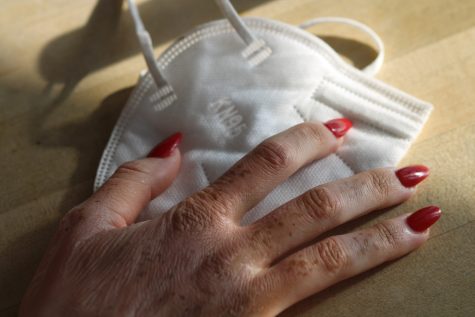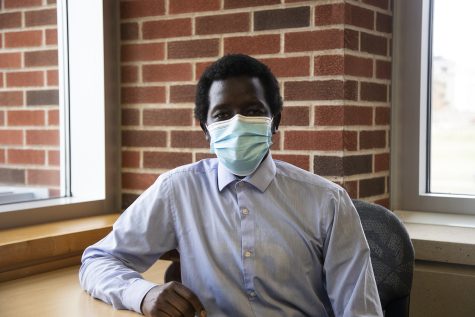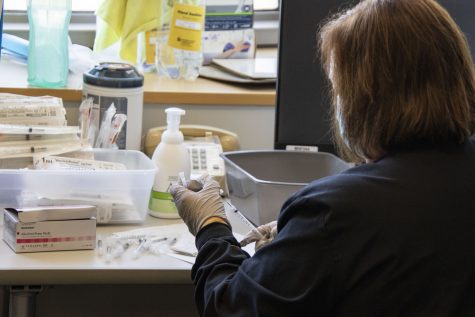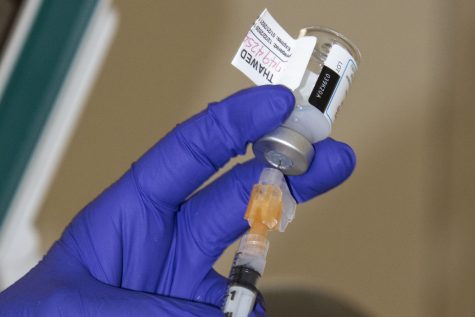University of Iowa students study abroad despite COVID-19 restrictions
University of Iowa students are studying abroad while adhering to the COVID-19 restrictions in their respective countries.
Photo Illustration by Braden Ernst.
February 8, 2022
When Carmela Furio flew to Italy this spring for their semester studying abroad, they had a packet of files with them on the plane in case they were stopped when trying to enter the country.
Furio, a third-year at the University of Iowa, said they had to bring passport documentation, as well as proof of COVID-19 vaccination and booster shot administration, and a negative COVID-19 test. All of the documents had to be checked and verified before they could board the plane.
“You had to have a negative COVID-19 test not within the time you left, but within the time you land in Italy,” Furio said. “It either had to be a PCR test within 72 hours or a rapid antigen within 24 hours.”
The university returned to normal approval processes for student international travel on Aug. 15. Autumn Tallman, UI senior associate director of international study abroad programs, wrote in an email to The Daily Iowan that all spring 2022 study abroad programs approved for UI student participation are continuing without interruption.
“We do not currently anticipate the cancellation of any spring 2022 programs due to COVID-19, as study abroad program providers have prepared to support students during the pandemic, just as UI supports students here on our campus,” Tallman wrote.
Furio also had to fill out a form describing all the different countries they had traveled to within the past month to ensure they did not need to quarantine when they arrived in Italy.
Their roommate in Italy, UI junior Samantha Murray, said she had to fill out the same documents and meet the same requirements to fly into the country.
To stay in hotels, use any public transportation, and go to most social activities in Italy, Murray and Furio had to receive a Super Green Pass. These are only distributed to those who are fully vaccinated. People can also be given a Basic Green Pass by testing negative for COVID-19.
“As long as you have a Green Pass, you can get in anywhere,” Murray said. “The only problem I had was when my phone died when I was in Florence, and I didn’t have my Green Pass anymore.”
RELATED: UI students excel in virtual study abroad programs
Furio and Murray said that while their day-to-day life has not been altered greatly, they still see the effects of COVID-19 when traveling to other areas and in their classes.
“Our program only has 11 people in it, and usually there’s about 60,” Murray said. “It would be cool to meet some more people and have some more people in our advanced Italian class because right now it’s just me and Carmela.”
Furio said it is also hard to interact with the other members of Italy’s study abroad program, at times.
“There’s three other apartments that the other students live in, and they aren’t allowed to have more than two visitors,” Furio said. “It’s very hard for all 11 of us to gather somewhere. The only place we can go is a cafe or a restaurant.”
Furio and Murray also said they have not yet traveled out of Italy to other European countries, as they have to test negative when they return and are worried about missing school.
“If we test positive in another country and we have to quarantine there, the school says that they’re not going to excuse our absences,” Murray said. “Attendance is pretty harsh here, and we’d basically fail.”
On Feb. 1, Italian Minister of Health Roberto Speranza signed an ordinance allowing travelers from European Union countries to come into Italy without a negative COVID-19 test. Furio and Murray said they are waiting to see if it lasts but are excited to travel if it does.
Overall, the two are having an enjoyable study abroad experience, with many precautions.
“While we’re here it feels like a typical study abroad experience, aside from taking precautions when we’re traveling,” Furio said. “The thing that impacted me the most was the extra preparation and workshops before I left.”
Rain Hurst, a UI third-year student studying in Pau, France, said they are also enjoying their time studying abroad, but have COVID-19 restrictions they must meet.
“France has asked me to transfer all of my vaccinations over into something the French would permit,” Hurst said. “You can’t go into a restaurant and eat without a Pass Sanitarie, it’s something they look at to make sure you’re vaccinated. It took a lot of time to get all that transferred over.”
Hurst also needed documents showing a negative COVID-19 test and proof of vaccination to get into France in January. Like Furio and Murray, they are also discouraged to travel to other countries and have not yet traveled outside of France.
“USAC [University Studies Abroad Consortium] told me that there are countries that they highly discourage you go to and then some where they were like ‘Be cautious,'” Hurst said. “It’s not the best idea but you can do it if you want to. I know there’s a lot more restrictions on going to the U.K. than into Italy or Spain.”
The UI partners with University Studies Abroad Consortium for one of its programs to send students abroad.
Tallman wrote that the UI also has an international insurance plan that is mandatory for UI travelers to provide a safety net of medical, security, and evacuation coverage for travelers.
Students are aware of the risks that traveling poses and have to fill out a high-risk travel proposal if they are traveling to a destination the U.S. Department of State considers high risk, Tallman wrote.
“Students can expect to play an important role in thinking through known risks and taking steps to mitigate them in partnership with a carefully selected study abroad program provider,” Tallman wrote. “Adaptability is an especially important attribute for travelers.”
Overall, Hurst said they still maintain their expectation of what studying abroad would look like, despite COVID-19 restrictions.
“I’m still getting what I wanted out of it, even if it’s not as much, I’m still getting a bit of everything that I came here for,” they said. “I’m talking with other friends, locals, I’m volunteering at a French high school to help them with their English, so lots of opportunities here.”
Editor’s Note: Samantha Murray is a former reporter for The Daily Iowan. In a previous edition of this story, the DI reported the program usually has 16 people instead of 60. We regret this error.



